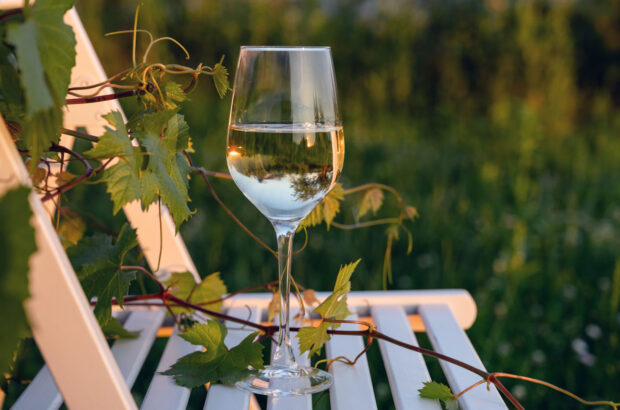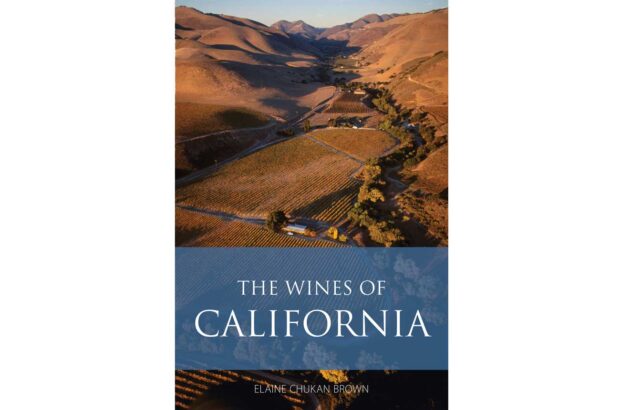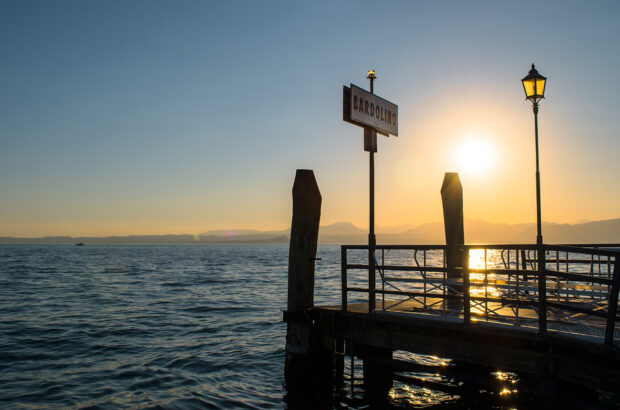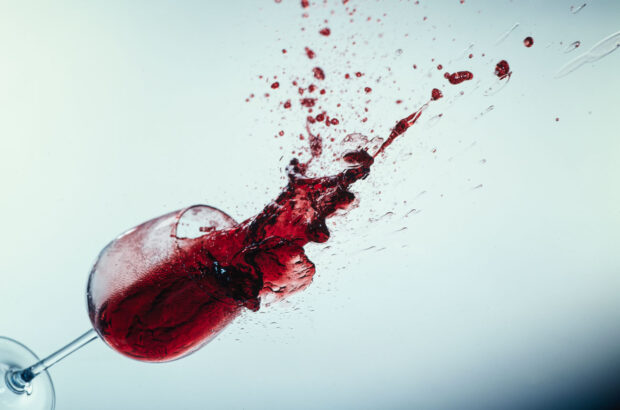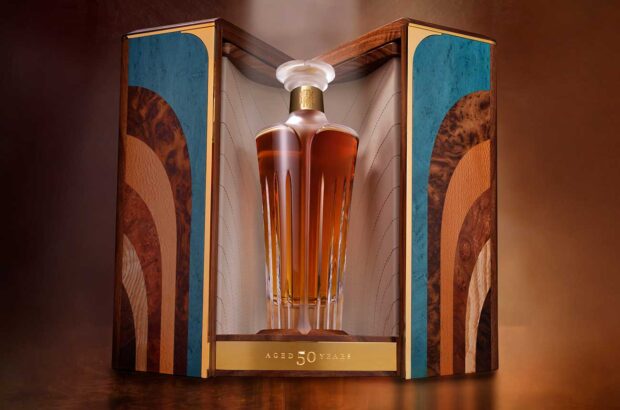Rosemount's winemaker for the last 12 years is now the man in charge of most of Southcorp's wines, too. SUSAN KEEVIL finds out what changes Philip Shaw has brought about.
There are two areas in which Philip Shaw might be wrong: firstly, he believes that regional wines are less important than blends (‘I’ve always thought blends were more complete wines’), and secondly that Italian varietals lack the commercial appeal to really take off. He might be wrong, but then he’s the first to admit it. The Philip Shaw of 12 years ago would have had none of it. His words were final; being wrong didn’t come into it. ‘Australia makes the best wines of all, and that’s that.’
https://www.decanter.com/wine-news/southcorp-will-survive-intact-chiefs-say-103729/
As someone who’s taken the wines of a small family winery and built them up to be national and international award winners, you’d think the bullish confidence would come later. Not so. But Shaw never did fit the ‘businessman’ stereotype. As Rosemount’s twinkly-eyed winemaker, he’s been behind huge commercial success, but there’s no doubt that, as mighty as he’s become, he’s definitely mellowed. Ask Shaw about the changes he’s seen in 12 transformational years and he smiles: ‘Yeah, they’ve been good, all good.’ Twelve years ago Rosemount was just about jostling into position at the top of the Australian tree, and ‘Mission Chardonnay’ was in full throttle – with a good dollop of oak helping it along the way. Today ‘Mission Shiraz’ is the main preoccupation. ‘And there’s now a better understanding of what makes wine great,’ reveals Shaw. ‘It’s better fruit characters. There’s also a better understanding of what goes wrong with winemaking.’ He adds: ‘That all might sound easy but it’s not. It took a while to understand excess oak: today we use as much as we did, if not more, but we’re learning how to handle it better. Back then we had a lot of excess ripeness and alcohol, but now we’ve learned how to get better fruit intensity by handling the grapes more gently – taking more care with the whites and avoiding harsh tannins in the reds.’
In actual terms, this has meant Shaw’s domain, his winery, has transformed from an experiment barn in which Chardonnay showers were not infrequent, as wines heated up and overflowed, and dry-ice fights (like snowball fights) among the cellar staff broke up the tedium of two-hourly manual temperature checks on each vat. Now it’s a slick laborynthine ‘plant’ (three times the size of the old winery) in which every vessel is computer monitored. The main daily task is no longer the emergency chilling of tank 28 which has reached 35?C, (the thermostats take care of that these days), but the careful brewing and blending of yeast cultures, or the monitoring of micro-oxygenation on the Cabernets. Cellar hands are less likely to be caught in a mad dash to save an out-of-control Shiraz ferment, than (with all the time in the world) adjusting the ‘irrigators’ on the vat of Mountain Blue. Less likely to be working in tattered, acid-rotted T-shirts, than plastic hard-hats and clean (well, nearly clean) chinos.
Scientific help
But in this new hi-tech set-up, does Shaw worry that things are getting too technical? What would he say to those who call Aussie wine formulaic and boring? ‘People pick on things to try to be critical. When I was in America recently, I was at a debate that asked “Is science destroying wine?” It was accusing Gallo and us. But Gallo, for example, just takes the grapes, huge quantities of them, drops them into the vats and presses them. It doesn’t add a thing. When I’ve worked in Burgundy, I’ve seen winemakers interfere far more.’ It would be difficult to deny, however, that Rosemount, under Shaw’s guidance, has developed cro-oxygenation to soften harsh young tannin in red wines; reverse osmosis to bring concentration to dilute wines; and has worked with special yeasts to give better lees texture in barrel-aged wines – all newly pioneered. Rosemount, for example, was the first company to have a RO (reverse osmosis) machine in Australia. ‘All these are techniques we try to avoid,’ says Shaw, ‘but they help. RO adds concentration, and that’s good. You have to realise that 50% of our vineyards are less than five years old. For a few years we’ve struggled to get intensity from them. Once we get maturity, we’ll get natural concentration and have to use less RO.’ But don’t these wine ‘construction’ processes make the wines taste bland and boring? ‘As long as you give wines the individual attention they need, no. Too many wine brands are pushed too far – they’re stretched further than the wine can handle. Then you lose quality. We don’t do that.’
Once keen to ‘cut down the tall poppies’, Rosemount has joined forces with fellow Australian giant Southcorp, and is now, itself, ‘very tall indeed’. So hand-in-hand with CEO Keith Lambert and the Southcorp team, does Shaw now see the wine world at his feet? ‘I had all sorts of dreams, but not this one,’ he says. There’s a glint there, which says he might not have dreamed about being one of the world’s most powerful winemakers, but he’s not unhappy about it. Surely he wasn’t getting bored of Rosemount? ‘Well I wasn’t exactly running out of challenges but it was beginning to worry me. In many ways this change adds excitement, and makes things easier. I’m clearer in my mind about what I’m doing now.’ And that is? ‘I’m going to get this company working well and make some great wines.’The first challenge is to understand the range and make the wines more commercial. We can’t have the attitude that they will make themselves, they’ve got to have the individual attention they need to make them good. For a start, the whites need to get brighter and more fruity, the reds more drinkable. Then I need to give the employees the tools to achieve quality and get them to work together. Rosemount has always been about people and it’s the people that’ll make this new company too.’
Taking control
As someone unintimidated by the massive responsibility of bottling up to a million bottles a day, it’s hardly surprising that Shaw has few role models. Not many other winemakers thrive as well in such situations. ‘It’s probably individual wines rather than people I admire. I’ve never worked for another winemaker, always made my own wines. It’s more the wines, how they fit together, their total effect, their balance, their structure that impress me. Rochioli Pinot Noirs are very elegant with lovely fruit, Riesling from Grosset too – Jeffrey is so super-careful it’s amazing.’ Shaw might not be intimidated by the scale of this newly formed giant company, but what about others? What does he say to those worried that Southcorp will now take over Australian wine? ‘Don’t believe a word of it. Three or four other companies are competitive with us, and that’s a very good thing. It’s not like the brewing industry. There are lots of people involved whose different ideas are all going into the melting pot.’ And for the next 12 years? ‘I don’t intend to slow down. Shiraz still has a way to go. I doubt we’ve seen it near full development yet. There are also signs of Sauvignon and Riesling making a comeback – Sauvignon especially. Merlot’s got some potential, Pinot Noir too. Chardonnay’s starting to develop some proper flavours without oak and alcohol. There’s a lot to work on.’ Today, Shaw has mellowed. He’s more relaxed, more willing to share responsibility with other winemakers – Andrew Koerner, Ian Long and Atsuko Kobayashi among them. ‘What’s so good about the wine industry today is there’s room for all sorts of opinions,’ he says. The multi-cultural procession of winemakers, students and journalists spending time at the Hunter Valley winery may have fed his ideas, but Shaw says he’s still waiting for Australia’s small wineries to put up a more consistent quality challenge. Some might say he is wrong about this, too, but until he’s convinced otherwise, Shaw will still take his inspiration from elsewhere. Where? Burgundy? ‘Leflaive’s Chardonnay is excellent, although there are a lot of rude things I could say about biodynamics.’ Bordeaux? ‘Only the modern styles are worth following. The rest are still scratching around without any basis for quality.’. And did he buy any 2000s? ‘Yes, that’s why I walked home last night!’
https://www.decanter.com/wine-news/lambert-forced-to-resign-as-southcorp-head-104733/
Susan Keevil is a freelance writer.



